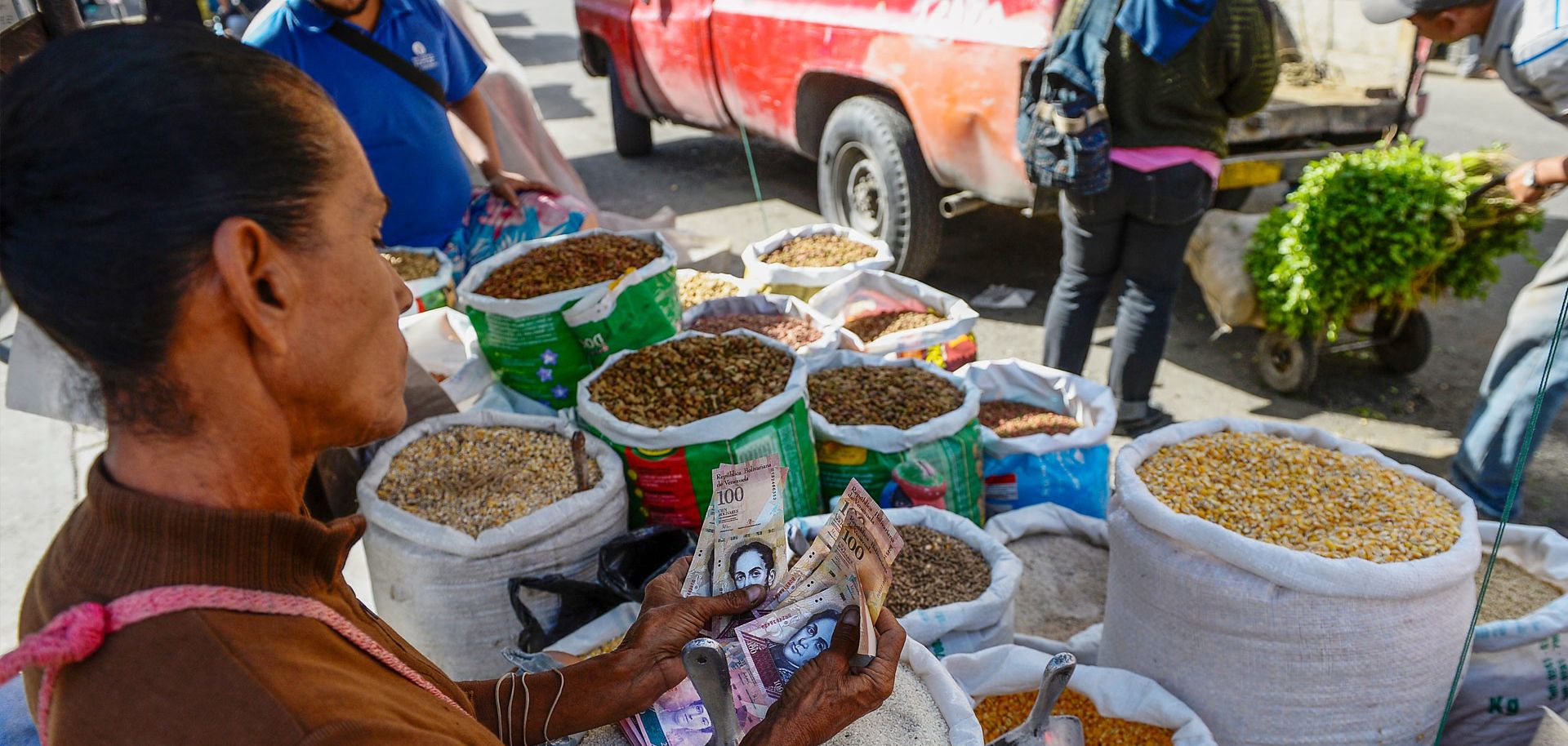ASSESSMENTS
When a Currency Swap Goes Wrong
Dec 20, 2016 | 09:15 GMT

(FEDERICO PARRA/AFP/Getty Images)
Summary
In a desperate attempt to keep up with runaway inflation, the Venezuelan government has pulled its lowest-denomination bolivars out of circulation. But the new bills intended to replace them (banknotes worth 500, 2,000 and 20,000 bolivars) are trickling into the country much more slowly than Caracas had hoped. Because the bills being phased out accounted for 80 percent of the bolivars in consumers' pockets — and few of their owners were able to exchange them for new ones in the tight five-day time frame allotted by the government — many Venezuelans have been left without the means to pay for food or basic necessities. Riots have broken out across the country, particularly in the states hardest-hit by food shortages and inflation, including Trujillo, Monagas, Tachira, Zulia and Bolivar. The situation will only get worse in the weeks ahead, despite President Nicolas Maduro's decision to temporarily legalize the 100-bolivar bill until Jan. 2 as his currency swap scheme unravels.
Subscribe Now
SubscribeAlready have an account?
